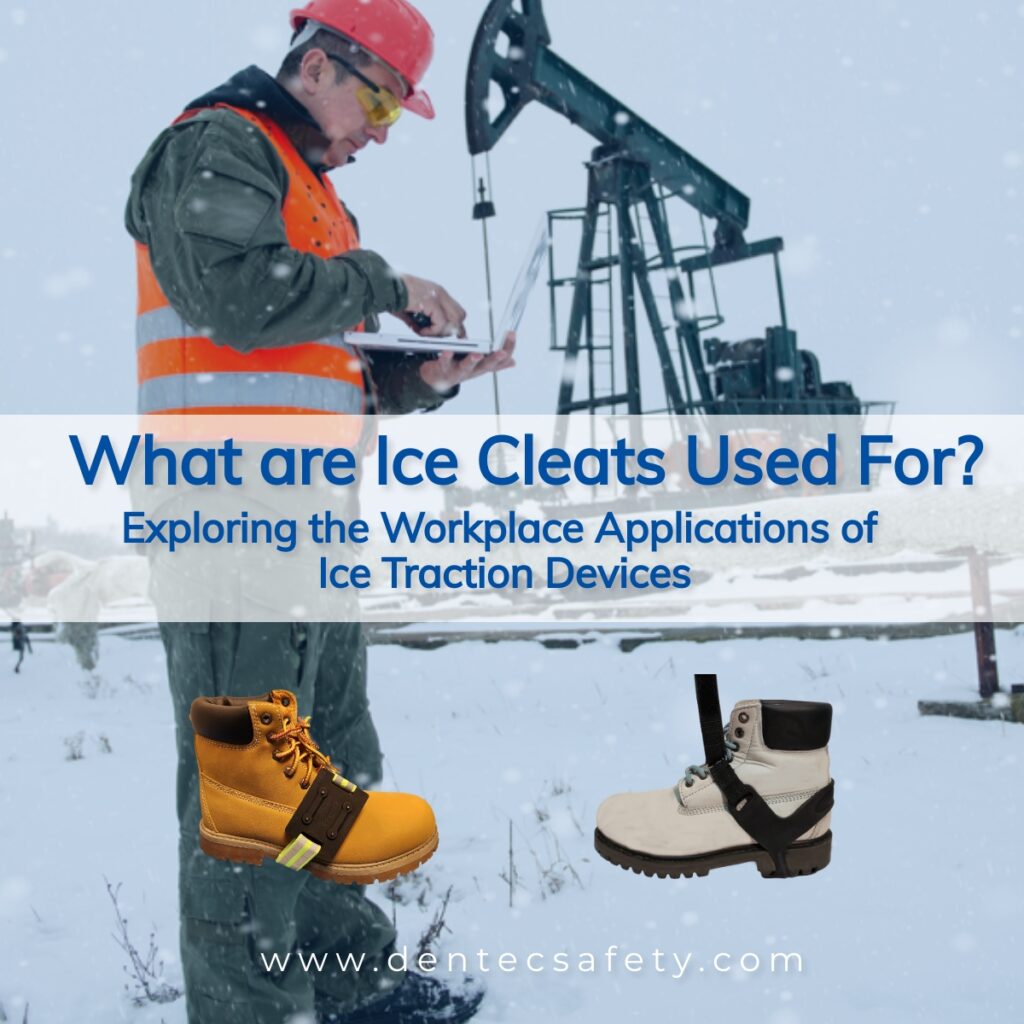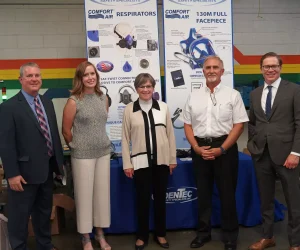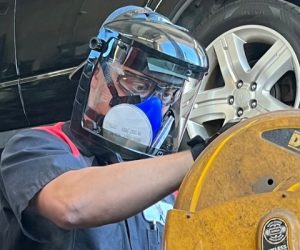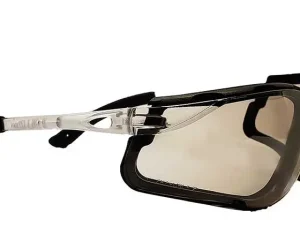The beauty of the winter season often comes with a price, especially for outdoor workers. Navigating slippery surfaces and frozen worksites can turn every step into a risk of falling and causing injury. In these challenging conditions, ensuring your safety and stability is vital.
Ice cleats, also known as ice grips or ice traction devices, provide much-needed traction on icy surfaces, for a wide range of outdoor work environments.
In this blog post, we will explore some of the most common workplace use cases for ice traction devices, considerations to keep in mind, and how they prevent slips and falls allowing you to work with confidence even in the harshest winter conditions.
Workplace Use Cases for Ice Traction Devices
Since most ice cleats are designed to fit over your everyday work boots or shoes in just a few seconds, any outdoor workplace with icy conditions is a prime candidate for the use of ice traction devices. Below we examine some of the more common workplace applications for these simple yet highly effective safety devices.
Construction Sites
Construction sites are often hubs of activity, where safety must be a top priority. Winter conditions only add to the potential hazards encountered during construction work, ranging from slipping on scaffolding to traversing through icy mud and snow. Ice traction devices can prove to be a game-changer for these work settings.

Key Considerations for Construction:
- Durability – Construction sites can be harsh and demanding environments. Choose ice traction devices that are built to withstand the rigors of construction work. Look for ice cleats that are durable, resistant to corrosion, and can withstand exposure to construction materials on site.
- Comfort – Construction workers often work long shifts and are on their feet for extended periods of time. Ensure the ice traction devices you select use a material that is soft and malleable underfoot. Devices that are made of rigid plastic may cause soreness and discomfort, which can lead to workers not wearing them. They should be lightweight, fit comfortably over work boots, and be adjustable accommodate a range of sizes.
- Surfaces – Construction workers may encounter a variety of surfaces on the job, including concrete, gravel, metal grating, and more. It’s important to select ice grips that provide traction on a range of surfaces commonly found on construction sites.
- Spark Hazard – On construction sites workers may be exposed to risks of flammability and ignition. In these environments, it is crucial to ensure the ice traction devices used on site are third-party tested to not cause a spark on contact and are suitable for use in these high-risk situations.
- Temperatures – The temperature range in which the ice cleats will be used is another important consideration. Make sure they are made from materials that can endure extremely cold conditions and remain functional and flexible during winter construction jobs.
Delivery Drivers & Postal Workers
Delivery drivers and postal workers are no strangers to extreme weather conditions and for many are the unsung heroes of the winter season. They brave the elements to ensure mail, packages, and other deliveries reach their destination promptly. They routinely encounter icy roads, sidewalks, and driveways that can be serious fall hazards. Ice cleats can provide the traction necessary to protect these essential workers from the dangers of slipping and falling while transporting goods safely and with confidence.
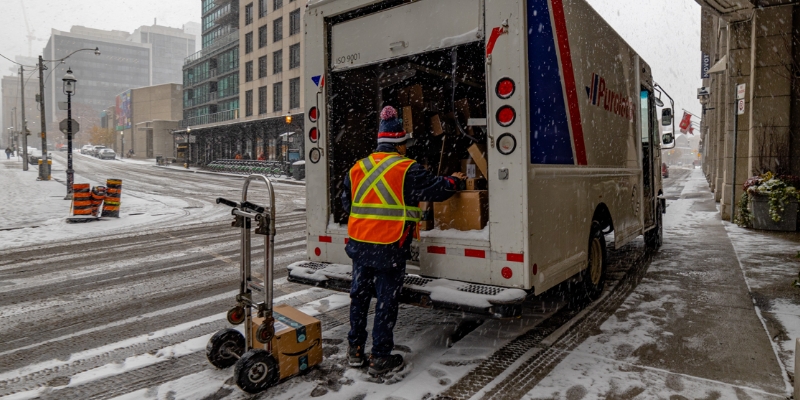
Key Considerations for Delivery Service:
- Ease of Use: Ice cleats should be easy to put on and take off to allow for smooth transitions between walking, driving, and making deliveries. Look for slip-on designs with convenient fasteners and methods for quick removal when returning indoors or entering a delivery vehicle.
- Comfort: Like construction workers, delivery drivers and postal workers spend long days on their feet, so comfort is essential. Winter traction devices that are lightweight with padding underfoot can provide comfort during long shifts.
- Proper Fit – Make sure the ice cleats you select are compatible with the footwear worn by delivery drivers and postal workers. Look for devices with adjustable straps to ensure a secure fit and accommodate different sizes. This is particularly important when ice cleats are shared between multiple users.
- Surfaces – Delivery routes often include a variety of surface types, such as sidewalks, driveways, roads, and steps. Select ice grips that offer reliable traction while transitioning from on and off ice and snow to these types of surfaces.
- Durability – Ice cleats should be constructed from durable and flexible materials that can not only withstand extreme winter temperatures but also the wear and tear of daily use from delivery drivers and postal workers.
- Storage – Delivery drivers and postal workers will need to store their ice traction devices when not in use. Consider devices that can be compactly folded or stored in a vehicle without taking up much space.
Surface Mining and the Oil & Gas Industry
Surface mining and the Oil & Gas industry are notorious for their demanding and often perilous working conditions. Icy surfaces and harsh winter conditions only compound the level of risk that workers face in these fields. Ice cleats can be an invaluable asset in enhancing safety and productivity in these critical sectors and work environments.
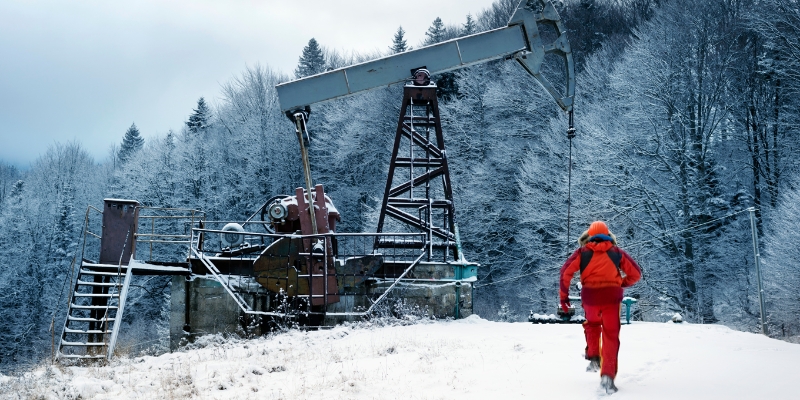
Key Considerations for Surface Mining and Oil & Gas:
- Durability – Surface mining and oil & gas operations can expose workers to harsh conditions, including abrasive surfaces, chemicals, and extreme temperatures. Look for ice grips that are constructed from very durable materials and capable of performing under these conditions without degradation.
- Spark Hazard – Surface miners and those in the oil & gas industry often find themselves working in environments where the presence of petroleum-based products and other substances could ignite or explode in the presence of a spark. Only use ice cleats that have undergone rigorous 3rd-party testing to guarantee that they do not pose an ignition hazard.
- Comfort – For any worker in any work environment where ice cleats need to be worn for extended periods of time, comfort is paramount, and the surface mining and oil & gas industries are no exception. Look for devices that are design with comfort in mind to reduce fatigue and discomfort over long-term use. Avoid heavy or bulky ice cleats as they can not only create discomfort for workers but also can hinder mobility on the job.
- Surfaces – Surface mining and oil & gas work environments, just like many outdoor work environments, often are comprised of multiple types of surfaces. It is essential that ice traction devices continue to provide reliable traction when moving from one surface type to another. Look for ice cleats with allow workers to easily transition from ice and snow to other surfaces such as concrete or asphalt while maintaining the necessary grip.
- Proper Fit – The proper fit of ice traction devices is not only critical for comfort but also the functionality of the device as well. Many workers in the surface mining and oil & gas industries wear steel-toed boots for added protection. Make sure the ice cleats include adjustable straps to ensure a secure fit on different types of footwear.
Stay Safe and Tread Confidently With ICETRED™

Don’t let icy conditions put your workers at risk this winter. Our versatile ICETRED™ ice traction devices have proven their worth in various workplace scenarios, from construction sites and mining operations to delivery drivers and postal services.
Made from durable, natural rubber and featuring tungsten carbide spikes, they provide maximum traction in even the harshest winter conditions. They not only offer excellent traction on ice and snow but also when transitioning on and off ice to other surfaces like concrete and asphalt.
They are durable enough to withstand even the harshest winter conditions but also comfortable enough to wear all day long if need be. For those work environments that pose an ignition hazard, you can rest assured as they are third-party tested not to be a spark hazard in gas groups A-D.
Don’t let winter’s icy grip hold you back. Dentec Safety’s ICETRED™ Ice Traction Devices are the key to conquering the cold, ensuring you stay on your feet and in control, no matter what job you’re doing.
Dentec Safety is a leading manufacturer and distributor of safety products in the North America since 2004. Dentec Safety is dedicated to providing the highest quality safety products and solutions delivering enhanced value and comfort. Our expertise from decades of experience in Industrial Safety and our innovative design technologies have solidified us as thought leaders in the field. Protection and comfort are at the core of everything we do at Dentec. As a leading manufacturer of Safety Solutions, it is our mission to help organizations do the right thing, keep their employees safe and exceed Industry Health & Safety Standard.



